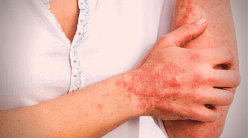Herbs For Cardiac Arrhythmia: Hawthorn Berry Benefits
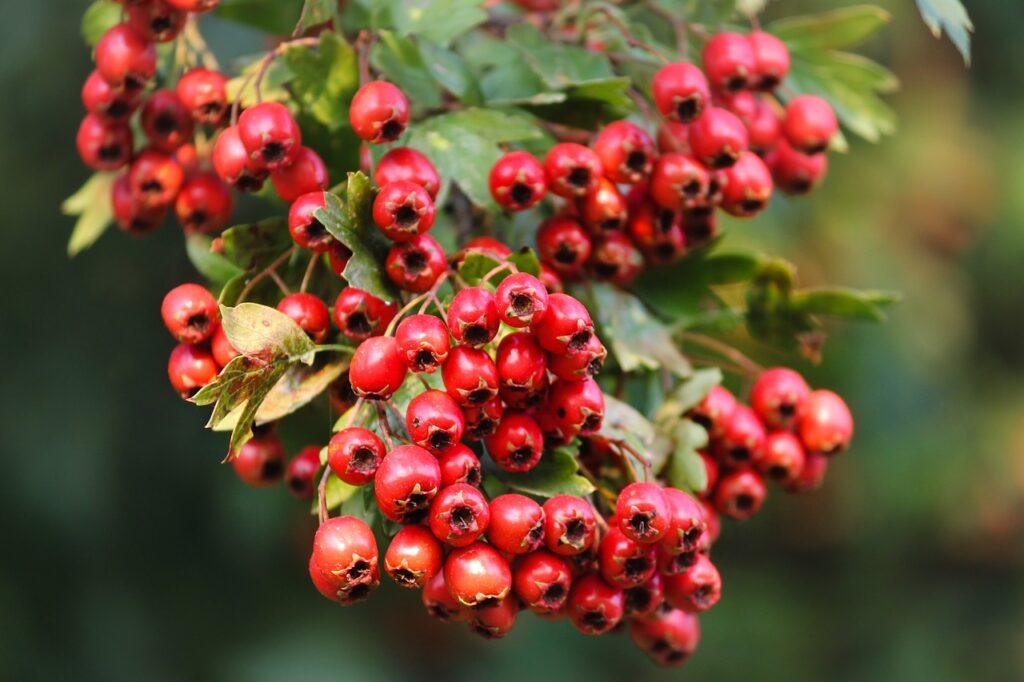
What Is Hawthorn Berry
Hawthorn is one of the most used herbs for diseases of the heart, such as arrhythmia, congestive heart failure, chest pain, and blood pressure problems. Crataegus or Hawthorn is also great for high cholesterol and for lowering fats in the liver and the aorta. Studies are confirming that hawthorn “may be an alternative treatment medication for arrhythmias induced by digoxin toxicity in humans.”
Hawthorn Berry For Heart
Studies showed that extracts of this plant are effective in reducing angina attacks as well as in lowering blood pressure and serum cholesterol levels. Hawthorn or Crataegus sp. is one of the most valued herbs for the heart.
Another study from the 2008 Cochrane Collaboration meta-analysis concluded that there is evidence of benefits in symptom control in treating chronic heart failure with hawthorn.
Hawthorn Berry Dosage
Hawthorn Tea Recipe
NOTE: Overdose can cause low blood pressure and cardiac arrhythmia. Patients taking digoxin should avoid taking hawthorn.
What Foods To Eat For A Healthy Heart: Garlic Benefits For Heart
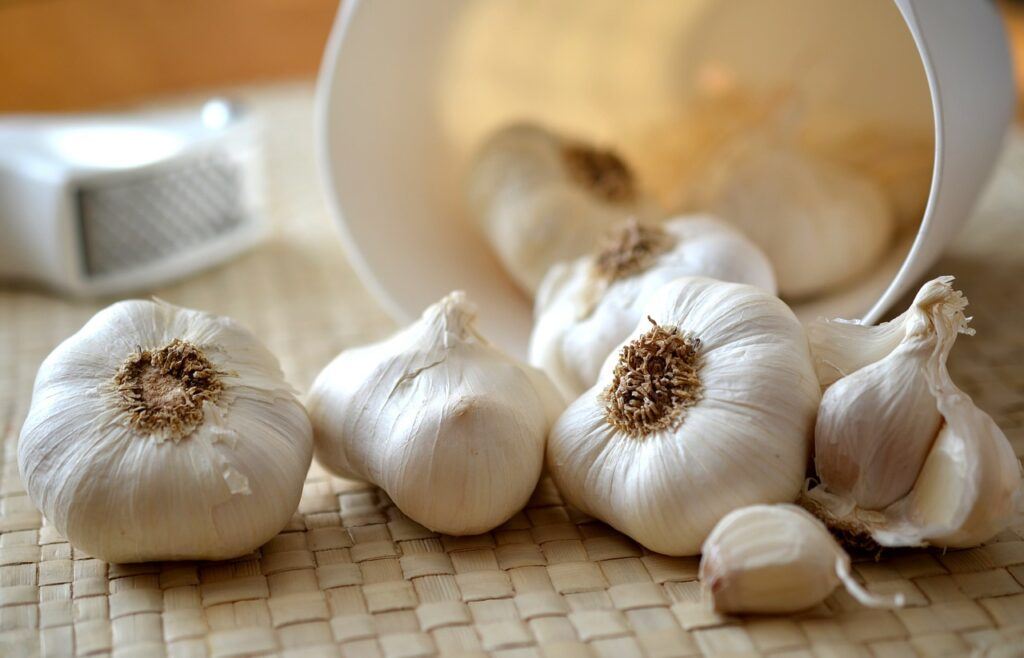
Garlic For The Heart
There is reliable evidence that the more garlic you eat, the less likely you become ill from heart disease or vascular disease. It’s proven that it lowers blood pressure and cholesterol levels and prevents the formation of plaque and blood clots in the arteries.
What Garlic Benefits
Garlic Daily Dosage
It’s recommended to eat at least 3 strokes of garlic a week or even more if there is a high risk of heart diseases in your family. I suggest eating 1-2 strokes of garlic per day! Prevention is better than cure!
If you decide to eat raw garlic, finely chop 1-3 garlic strokes a day and leave it for 10 min on room temperature before eating it, allowing to develop the enzyme reaction and the biologically active ingredients.
Turmeric For Heart Health: Treat Arrhythmia Naturally
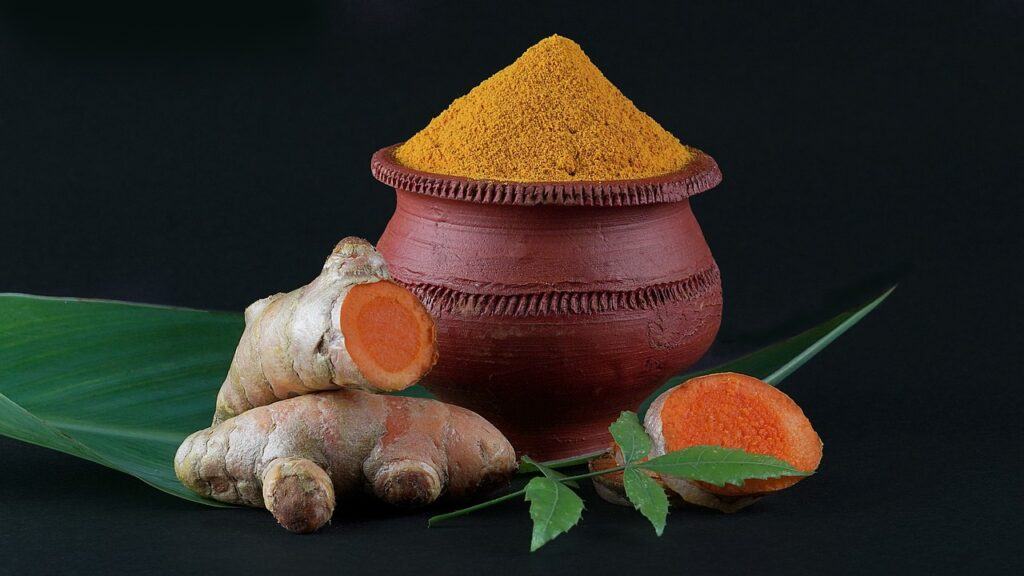
What Is Turmeric Curcumin
Turmeric contains a yellow pigment ingredient known as curcumin, a compound that has been a subject of many studies with positive conclusions. Curcumin is one of the most studied compounds on Earth. It has been proven that curcumin balances the level of cholesterol and protects from the harmful effects of free radicals. Laboratory studies showed that curcumin lowers blood pressure and reduces the ability of cholesterol to form plaques on the walls of the artery.
Turmeric Uses
Turmeric has been used for more than 3000 years as a powerful anti-inflammatory agent. Hundreds of studies are confirming its anti-inflammatory, anti-oxidant, anti-carcinogenic, anti-thrombotic, and cardiovascular protective effects.
Turmeric Medical Studies
Department of Medicine, Faculty of Medicine, Chiang Mai University, Chiang Mai, Thailand published a review ‘The protective role of curcumin in cardiovascular diseases’ which showed that anti-inflammatory effects of curcumin may have the possibility of preventing arrhythmias. It also has a positive impact on other cardiovascular diseases, such as cardiac hypertrophy and heart failure. Curcumin may prevent diabetic cardiovascular complications, attenuate adriamycin-induced cardiotoxicity, as well as it may protect against the pathological changes occurring with atherosclerosis.
Turmeric For Arrhythmia Treatment:
Cure For Arrhythmia: Lycopus Herb or Gypsywort Herb
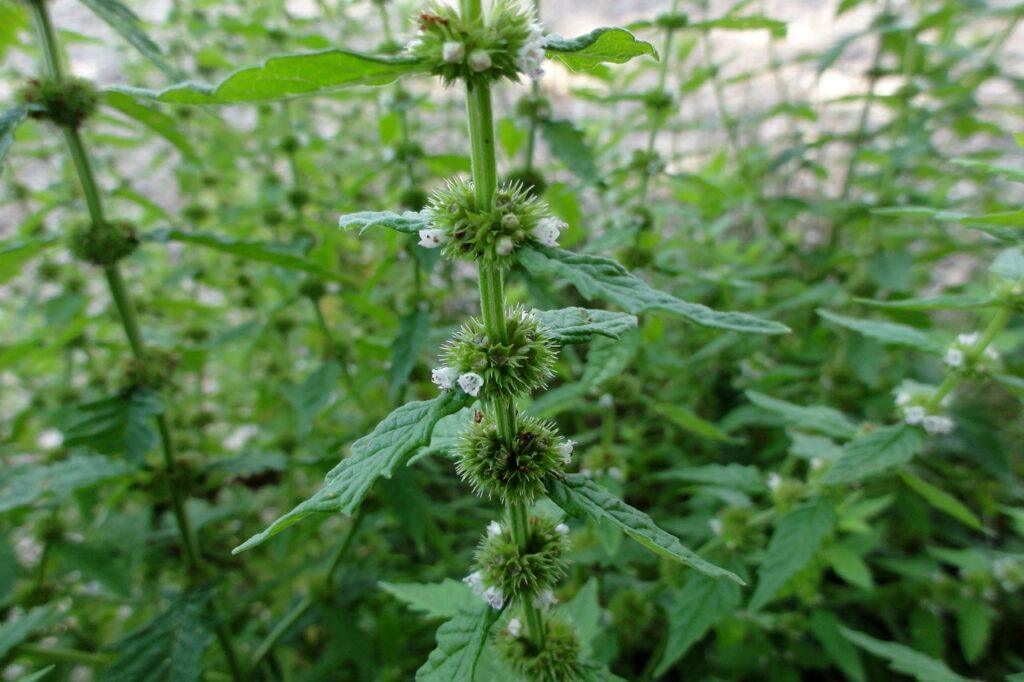
What Is Gypsywort
Gypsywort or Lycopus europaeus is a perennial herb that grows primarily in wetland areas.
Herb Uses
It has been used for thousands of years in traditional medicine to treat arrhythmia, cardiovascular conditions, amenorrhea, asthma, appetite loss, diarrhea, bleeding, bruises, colds, cough, debility, diabetes, dysentery, fever, gastritis, gastrointestinal problems, hemorrhoids, hemorrhage, hyperthyroidism, hypertrophy, indigestion, inflammation, insomnia, insufficiency (circulatory ), lung problems, etc…
Gypsywort has antiphlogistic, cardiac depressant, diuretic, astringent, hemostatic, emmenagogue, narcotic, sedative, nervine, stimulant, and tonic properties.
Lycopus Herb As Medicine
A study published in 2008 investigated the effects of Gypsywort or Lycopus europaeus herb on thyroid function and on associated symptoms. When the thyroid produces too much of the hormone thyroxine, hyperthyroidism occurs. Some of the symptoms of hyperthyroidism are irregular heartbeat or arrhythmia, rapid heartbeat( tachycardia ), and heart-pounding ( palpitations ). That study revealed that preparations of gypsywort have positive effects in a slight form of hyperthyroidism as it helped to improve symptoms associated with an overactive thyroid, such as increased heart rate and arrhythmia.
NOTE: Avoid use if pregnant or breastfeeding, or if you have hypothyroidism or glandular swelling. It can cause an interaction when taken with the following drugs: Thyroid drugs!
Herbal Dosage For Treatment Of Arrhythmia:
- Dry Lycopus Herb 3-9 grams/ 0.1- 0.3 oz per day
- Use Herbal Tinctures: 10-30 drops 1 to 3 times per day
Herbs For Arrhythmia: Motherwort Leonurus Cardiaca
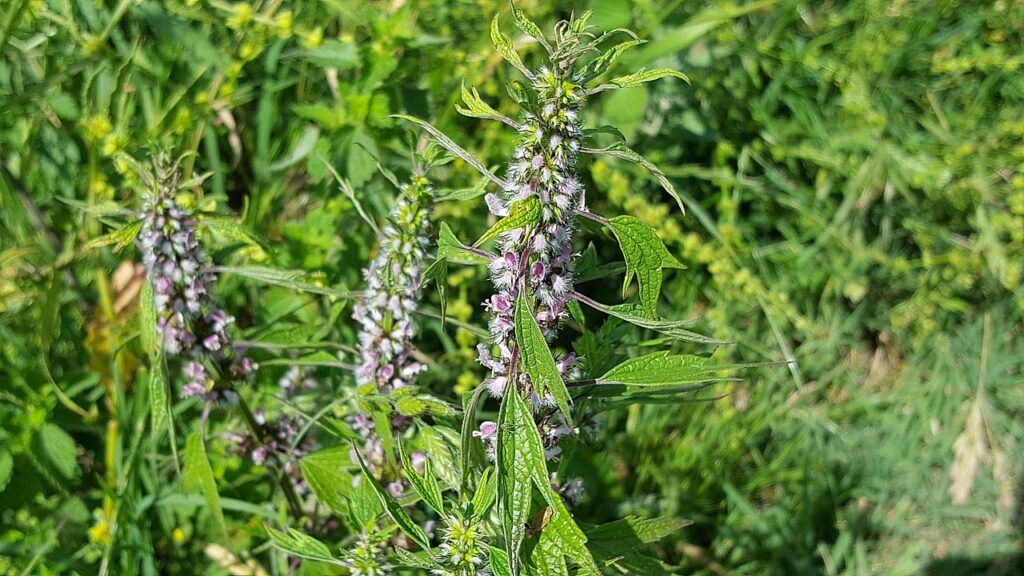
What Is Motherwort
Motherwort or Leonurus cardiaca is one of the best herbs for heart health and has a long history of use in Asian and European Traditional medicine.
What Is Motherwort Used For
Traditional medicine uses it for nervous and functional cardiac disorders, as well as for other health concerning problems, such as uterine infection. The beneficial effects of Motherwort are known since the 15th century. Nowadays studies are confirming its traditional use as a promising natural remedy for arrhythmia patients.
Motherwort is used for many conditions including arrhythmia, angina, cardiovascular conditions, anxiety, arteriosclerosis, asthma, bleeding, bronchitis, bruises, cancer, depression, headache, insomnia, lung problems, short breath, sexually transmitted diseases, spasmodic diseases, thyroid problems, rheumatism, etc…
Motherwort Benefits
It is highly valued for its cardiotonic, hypotensive, and sedative pharmacological effects. Among others, it has anticarcinogen, anticoagulant, astringent, antiphlogistic, antispasmodic, cardiant, carminative, diuretic, diaphoretic, hemostatic, nervine, stomachic, vasodilator, and tonic properties.
Due to its cardiotonic properties is able to correct heart action in various heart problems. It is also great for relaxing blood vessels and blood pressure as well as for the exhausted nervous system. Motherwort is truly a wonder herb for a healthy heart.
Motherwort Side Effects
NOTE: Don’t use this herb if pregnant or breastfeeding or if you have a coagulation problem. May cause dermatitis in susceptible individuals. Some patients may experience bleeding or increased clotting time when using this herb with anticoagulant drugs or aspirin! It could cause an interaction when taken with the following drugs: Cardiac drugs, Anticoagulant drugs, Hypotensive drugs, Salicylates, Saditive drugs, and Subsalicylates
Motherwort Dosage For Arrhythmia Treatment:
- Motherwort Herb: 10 -30 grams/ 0.35- 1 oz per day
- Motherwort Tincture: 5- 15 drops up to three times per day
- Motherwort Tea: 1 cup per day
- Motherwort Capsules: 1 capsule three times per day
Healthy Heart Recipe
This mixture contains herbs for a healthy heart. Maria Treben made this mixture which is surprisingly effective in the fight for the healthy heart and cardiovascular system.
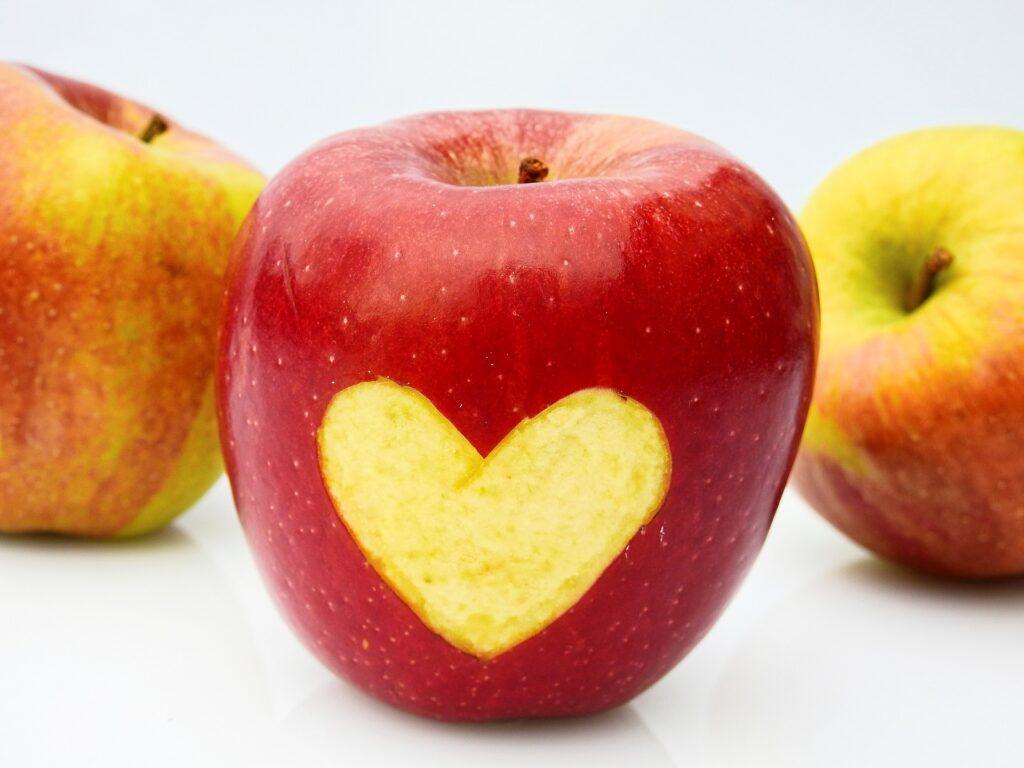
24 herbs mixture:
- 0.35 oz horsetail
- 0.35 oz arnica
- 0.35 oz downy hemp nettle
- 0.35 oz buckthorn bark
- 0.35 oz yarrow
- 0.35 oz sweet flag
- 0.35 oz herb-of-grace
- 1 oz hawthorn
- 0.35 oz dandelion
- 0.35 oz capsella
- 0.35 oz earth smoke
- 0.35 oz spiny restharrow
- 0.35 oz knotgrass
- 0.70 oz mistletoe
- 0.35 oz bean hulls
- 0.35 oz lemon balm
- 0.35 oz Leonurus cardiaca
- 0.35 oz red algae
- 0.35 oz salad burnet
- 0.70 oz yerba mate
- 0.35 oz bladder wrack
- 0.35 oz silverweed
- 0.35 oz couch grass
- 0.35 oz thorny burr
Wanna Learn More About Arrhythmia? Click Here
References:
- The Complete Book of Herbs. Readers Digest, 2008.
- Health through God’s Pharmacy: Advice and experiences with medicinal herbs: Advice and Experiences with Medicinal Herbs, Maria Treben, Published January 28th, 2003 by Ennsthaler (first published 1980).
- Protective effects of Hawthorn (Crataegus oxyacantha) extract against digoxin-induced arrhythmias in rats: https://www.ncbi.nlm.nih.gov/pmc/articles/PMC5368468/
- The protective role of curcumin in cardiovascular diseases: https://www.ncbi.nlm.nih.gov/pubmed/19233493
- Lycopus europaeus (Gypsywort): effects on the thyroidal parameters and symptoms associated with thyroid function: https://www.ncbi.nlm.nih.gov/pubmed/18083505
- Application of Traditional Chinese Medicine in Treatment of Atrial Fibrillation:https://www.ncbi.nlm.nih.gov/pmc/articles/PMC5294366/
- The Role of Biologically Active Ingredients from Natural Drug Treatments for Arrhythmias in Different Mechanisms: https://www.ncbi.nlm.nih.gov/pmc/articles/PMC5405360/
- Wikipedia
Disclaimer: All information presented on this website is for informational purposes only. These statements have not been evaluated by the Food and Drug Administration. This website is not intended for diagnosis, treatment, treatment or prevention of disease and is not intended for substitution treatment. This information is not meant to cover all possible uses, precautions, interactions or adverse effects. This information may not fit your specific health circumstances. Never delay or disregard seeking professional medical advice from your doctor or other qualified healthcare providers because of something you have read on whatcure.com. Please seek the advice of a healthcare professional for your specific health concerns.





